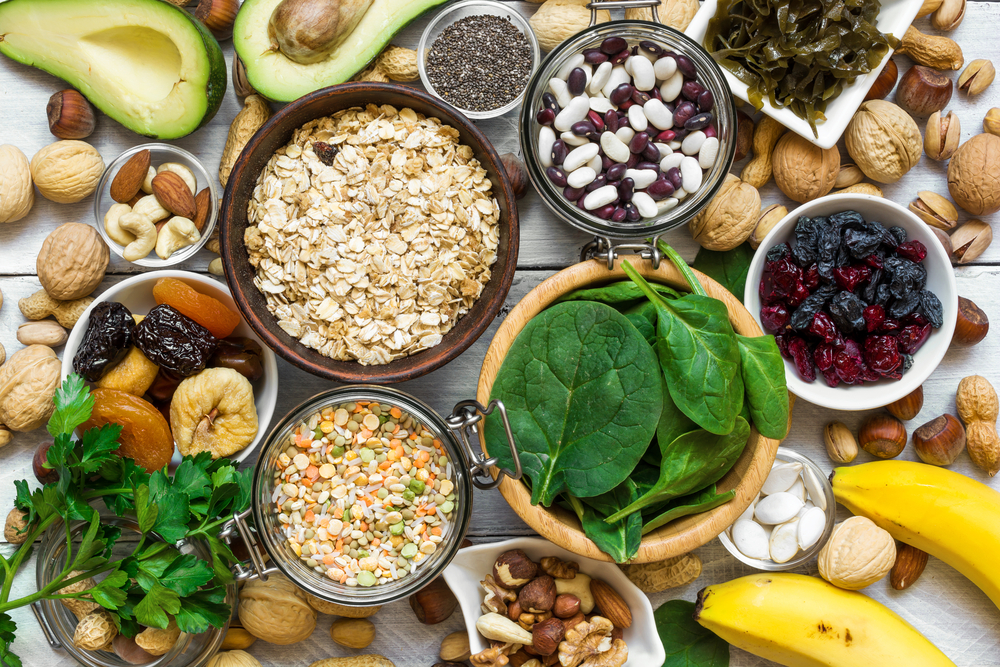Magnesium May Reduce Risk of Dementia — But It’s Not That Simple
Posted on Categories Discover Magazine

Dementia is one of the most devastating illnesses you’re likely to get. How likely? According to the World Health Organization, 55 million people worldwide currently have some form of dementia. In the United States, perhaps as many as one in ten have dementia, while another 22 percent suffer from mild cognitive impairment. Risk increases as you age. Among those over 90 years old, the rate is 35 percent.
Unfortunately, there’s no cure for dementia, and despite some encouraging news in the last year, there has not been much progress toward one. That’s why a lot of experts say we should be focusing on prevention. And it’s clear that when it comes to reducing your chances of getting dementia, diet matters. Eating a well-balanced, healthful diet can definitely reduce your risk. But which nutrients in that diet are responsible for the benefit?
Does Magnesium Lower Dementia Risk?
In recent years, there has been some encouraging research exploring the role of magnesium in lowering the risk of dementia. A study examining the diets of Americans 60 years and older found that a high intake of magnesium may be associated with better cognitive function. The effect seemed strongest among women and non-Hispanic whites. Another study found that magnesium could potentially be an effective therapy for Alzheimer’s disease, the most common form of dementia.
At this point, you may be thinking, “OK, so what foods are high in magnesium?” That would be whole grains, beans, nuts and seeds, leafy greens, and fatty fish, such as salmon. Sound familiar? Yep, that lineup, or variations of it, tend to appear on all the lists telling you what to eat to reduce your risk of dementia (and a load of other ailments as well).
Read More: Magnesium Levels Change as we Age, but Supplements can Help
The Importance of a Balanced Diet for Brain Health
The reason, says Yian Gu, is that the overall dietary pattern is what’s important. Gu is a neuroscientist and epidemiologist at Columbia University. She’s been working for years to understand the role of diet and other lifestyle factors in brain aging, cognitive aging, and neurodegenerative diseases.
“We eat a lot of foods, and those foods include a lot of nutrients,” says Gu.
And those nutrients almost certainly work in a synergistic fashion, she adds. In other words, it may well be that the benefit comes not from any one nutrient but from those nutrients working as a team.
This February, Gu and colleagues published a study showing how a good diet might lower the risk of dementia: It may slow down the biological processes of aging. The study focused on the Mediterranean-Dash Intervention for Neurodegenerative Delay Diet. Better known as the MIND diet, this is a mash-up of the Mediterranean diet (famous for its emphasis on olive oil, fruits and vegetables, and small amounts of low-fat dairy and meat) and the DASH diet, which is designed to lower hypertension.
In practice, the MIND diet is basically the Mediterranean diet with a heavy emphasis on foods known to be good for brain health, such as leafy greens and berries, beans and nuts, and fatty fish.
Read More: 6 Brain Boosting Foods You Should Have on Your Plate
How to Get More Magnesium
And that brings us back to magnesium, a nutrient plentiful in many mind diet foods. If you’re looking to lower your risk of dementia, magnesium can certainly help. But the best way to get it is as a package deal with other healthful foods. Just popping magnesium supplements may not do the trick.
“There are some nutrients that can be more protective, more beneficial, than others,” says Gu. “But it can be very hard to design research that evaluates the effect of a single nutrient.”
Still, she says, studies on individual nutrients are important because we need to know the biological mechanisms that link these dietary patterns. And trying to understand these mechanisms is what Gu and her colleagues are doing.
Meanwhile, the rest of us, trying to reduce our risk of dementia and other debilitating diseases of aging, need to concentrate on eating a good, well-balanced diet and avoiding unhealthful foods, such as saturated fats and processed food.
“I think it’s easier, actually, to follow a healthy dietary pattern than to focus on just one single nutrient or a few nutrients,” Gu says. “A lot of the food items that provide a lot of magnesium can also provide other beneficial nutrients, like omega-3 and other antioxidants.”
Read More: What You Should Know About Magnesium Supplements
Article Sources
Our writers at Discovermagazine.com use peer-reviewed studies and high-quality sources for our articles, and our editors review for scientific accuracy and editorial standards. Review the sources used below for this article:
Avery Hurt is a freelance science journalist. In addition to writing for Discover, she writes regularly for a variety of outlets, both print and online, including National Geographic, Science News Explores, Medscape, and WebMD. She’s the author of “Bullet With Your Name on It: What You Will Probably Die From and What You Can Do About It,” Clerisy Press 2007, as well as several books for young readers. Avery got her start in journalism while attending university, writing for the school newspaper and editing the student non-fiction magazine. Though she writes about all areas of science, she is particularly interested in neuroscience, the science of consciousness, and AI–interests she developed while earning a degree in philosophy.